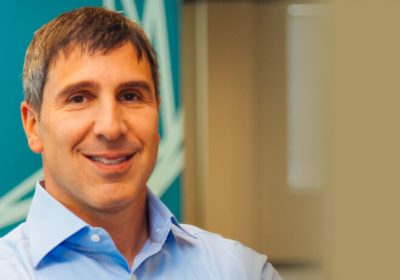
- Author: Alexandra Cain
- Posted: September 2, 2021
HPE Financial Services: supporting clients’ IT, business and sustainability goals
CFO challenges abound in a fast-changing world and supporting their business digital transformation is a major one. Whether it’s enabling access to the latest technology, one that is able to support environmental, social and governance (ESG) objectives, or managing legacy technology issues.
As economies rebound , many organizations are re-vamping their operations to adjust to a new business landscape and go from surviving to thriving. More and more organizations are undergoing digital transformation to fully capitalize on the market opportunity, however economic considerations for IT investments continues to remain a challenge particularly compounded by the current pandemic situation.
Organizations find it increasingly difficult to deal with these complexities, but few enterprises have navigated through rough waters by partnering with vendors. In a recent study, ESG Research Survey found that organizations realize significant dividends when they partner with vendors that offer a combination of IT lifecycle management and financing solutions. HPE Financial Services (HPEFS) combines the technology insights of a CIO with the financial acumen of a CFO to create innovative, sustainable IT management strategies. HPEFS helps customers to accelerate digital transformation by creating the investment capacity required to move beyond the pandemic and ride the wave of economic recovery.
Damien Whelan, enterprise segment go-to-market leader, Australia and New Zealand for HPE Financial Services, explains even before COVID, many HPE Financial Services’ clients were transforming their business model, but the pandemic has bought digital to the fore and clients have accelerated their pace of digital transformation significantly.
“The majority of clients have completely rethought their business model and IT infrastructure over the past 18 months. Many have redesigned their entire business, which means their technology choices, how they implement them and the partners they use have all undergone significant change. In particular, working from home has forced many businesses to fundamentally rethink how they equip their employees to be effective from home and how their systems and processes within their data centre needs to change.”

This dynamic will only continue in the future, says Whelan.
“People will continue to work from home, which is shaping our customers’ IT choices. In some cases, through COVID, clients had their IT infrastructure in place, but their revenue has been constrained as a result of restrictions and lockdowns. So very quickly we introduced a lower payment program to help them through that. It’s an approach consistent with our ethos of partnerships and long-term relationships. It’s also just good business sense; it’s not in anyone’s interest to put added pressure on a business experiencing a rough patch and it’s not the right thing to do .”
A new procurement model
The increasing popularity of consumption-based service solutions is an important driving force in business technology transformation. This is helping to drive cost efficiencies and lower the total cost of ownership, a key reason why this model will continue to get traction within Australia and New Zealand. Importantly, the focus has shifted from lower total cost of ownership or maximising capital, to helping to support the business with its sustainability agenda, maximise utilisation rights and legacy issues.
HPE Financial Services organises clients’ IT infrastructure into two: the data centre and workplace. Workplaces have had significant IT challenges over the past two years as a result of global supply shortages across all hardware manufacturers, which continues to be a significant issue for clients and is expected to be, potentially into 2023. HPEFS is right beside clients who are navigating their way through this.
“Clients are hanging onto assets longer, which means they are going to have to rethink the way they procure and distribute those assets, given they can’t do big, one-off upgrades. Instead, they will need to upgrade assets over time, requiring a new resourcing model. This is likely to prompt compatibility and version control challenges, causing disruption within businesses,” says Whelan.
At the same time, he explains in recent years, data centres have increasingly pivoted to an on-premise, private cloud model. “Clients are moving workloads back into the data centre, which means they are reinvesting in data centres. That’s driving decisions around legacy workloads and equipment and budgeting to undertake the transformation.”
One way HPE Financial Services is assisting its clients through this is by taking a fresh view on how this transformation can be managed in an organisation. HPEFS has launched a new suite of offerings designed to help companies optimize investment capacity, accelerate transformation, and pivot to an as-a-service model. Customers have the option to convert some or all of their tech estate to HPE GreenLake Cloud Services with ease, almost overnight.
Says Whelan:
“We position ourselves as the ‘Chief Information Financial Officers (CIFO)’, a strategic partner who supports a combination of CIO’s technology and transformation agendas and the CFO’s advisory and strategic agenda . We address the IT, business and financial challenges that are going to be created to drive an optimum outcome. So we see ourselves as being very much a consultant that helps them deliver or arrive at the best strategy for the business.”
Importantly HPE supports CFOs’ transformation funding agendas. “Legacy applications and equipment sit on your balance sheet. Writing off these assets is one of the biggest stumbling blocks to transformation. Increasingly, CFOs want to monetise these assets and apply the proceeds to their transformation programs, especially if COVID has constrained their budgets. We can help them with this.”
Helping businesses hit ESG targets
With an emphasis on asset up-cycling services and certified pre-owned, HPE Financial Services assists its clients to meet both their sustainability goals and their compliance obligations. Also, moving away from owning to consuming technology on an as-a-service model allows customers to be ahead of the game, while enjoying a more flexible and sustainable business model.
“We produce circular economy metrics for our clients about their approach to technology, either raw or as a report. This is a huge focus for our CFOs,” Whelan says.
HPE Financial Services also reports against the United Nations’ sustainability targets and is part of the carbon disposal project. It also contributes to a range of industry bodies that focus on the circular economy. “The sustainable supply chain is incredibly important to us,” he continues.
Ultimately, we want to be a strategic partner to our clients, helping them to achieve their goals. As Whelan says, it’s all about driving business outcomes and leveraging the advantages technology delivers, to create an optimum outcome for organisations large and small.
HPE Financial Services combines the technology insights of a CIO with the financial acumen of a CFO to create innovative, sustainable IT management strategies. Partner with us and we will create the investment capacity you need to accelerate your transformation. We are relationship-based and focused on the long term, developing a playbook that’s unique to your IT asset portfolio, aspirations, and size. From edge to cloud to end user, across your entire technology estate, throughout its lifecycle, we help you execute your plan consistently and globally to unlock your potential. Learn more here









